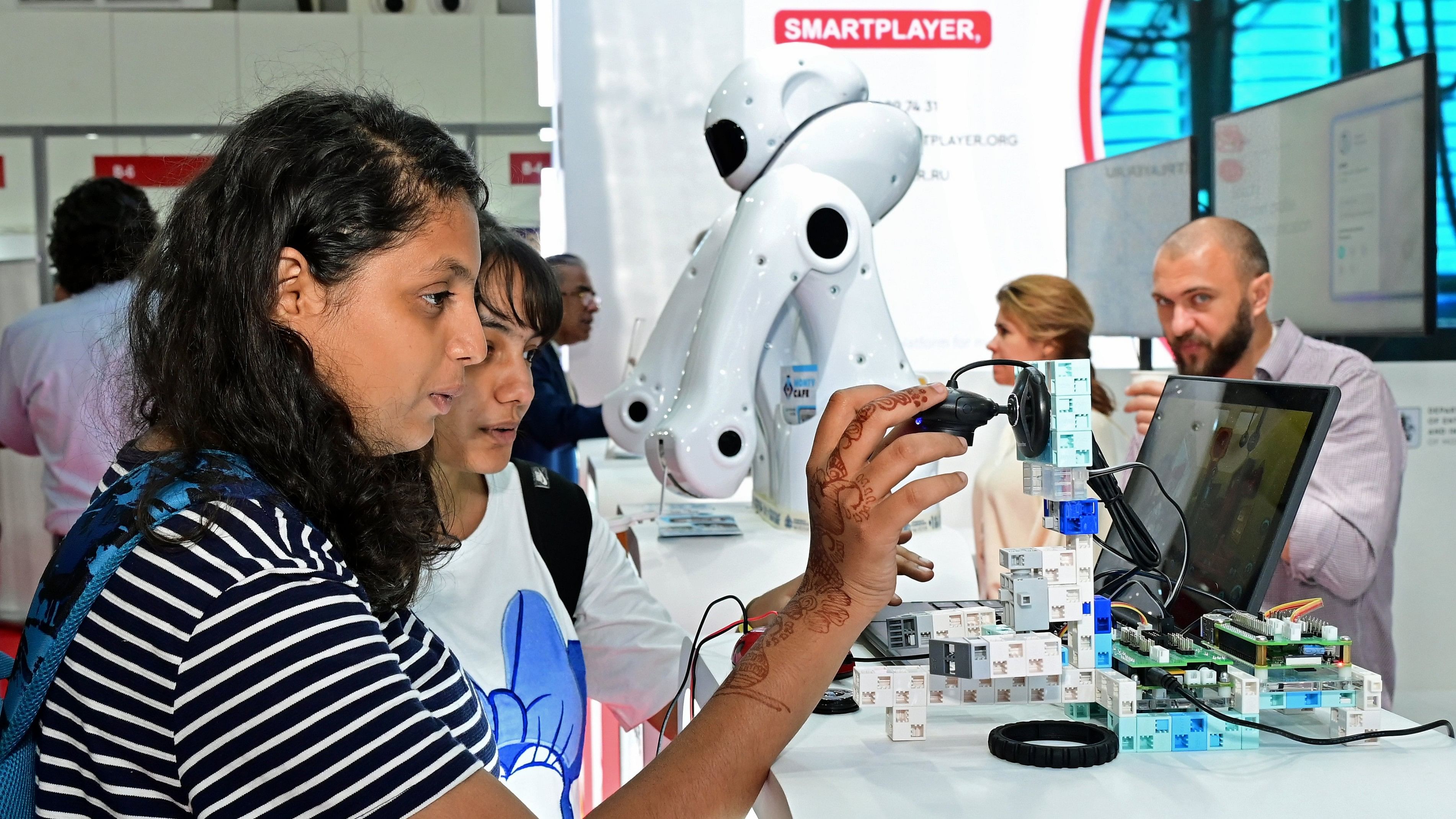
Visitors look at exhibits at the exhibition organised as part of the Bengaluru Tech Summit at Palace Grounds on Wednesday.
Credit: DH Photo/Ranju P
Bengaluru: Pandemic preparedness efforts are amplified by healthtech innovations that enable regular citizens to contribute for surveillance data collection.
Expert stakeholders can use this large dataset to draw patterns to predict health outbreaks and devise better mitigation strategies, noted panellists at the Bengaluru Tech Summit.
Dr Prabhdeep Kaur, Professor and Chair, Isaac Centre for Public Health, IISc, who moderated the One Health and Pandemic Preparedness session, prompted panellists to discuss technological tools that can make use of large volumes of community health data points now available with governments, especially post-pandemic, to strengthen preparedness efforts.
"We must come up with more and more platforms where the general public can contribute for data gathering. We are inviting experts, trying to define the problem for them so solutions come from them, and are trying to implement them in pilot projects," said Suralkar Vikas Kishore, Special Commissioner (Health), BBMP.
Dr Swetavalli Raghavan, global health and implementation science expert and advisor to the state health department, noted that anti-microbial resistance, which is a state priority subject now, leads to poor health outcomes and a high rate of mortality, prompting greater surveillance on the production, usage and disposal of antimicrobial drugs.
"The state is looking at building more digital and physical infrastructure in the long term to strengthen our health systems and surveillance. Tech is one of the largest enablers in healthcare, but a big challenge is the availability of credible data," she said, encouraging companies to devise digital therapeutics based on data lakes and aid the state's preparedness for any future pandemic.
Dr Sindura Ganapathi, Visiting PSA Fellow, Office of the Principal Scientific Adviser (PSA), Government of India, noted that engaging students and academics is important to solve the data issue. He directed healthtech companies to look at priority diseases in human and livestock and find opportunities to collaborate with the government or research organisations.
An earlier panel on Biotech Innovations for Wellness, Longevity and Cognitive Health in 2050 explored various cutting-edge advancements in biotechnology aimed at improving human health and lifespan.
Panellists from IISc, Nimhans, two international universities, and private organisations discussed breakthroughs in gene editing, regenerative medicine, precision diagnostics and care, and AI-driven healthcare, aimed at delaying ageing, enhancing cellular repair, preventing disease, and improving overall wellness.